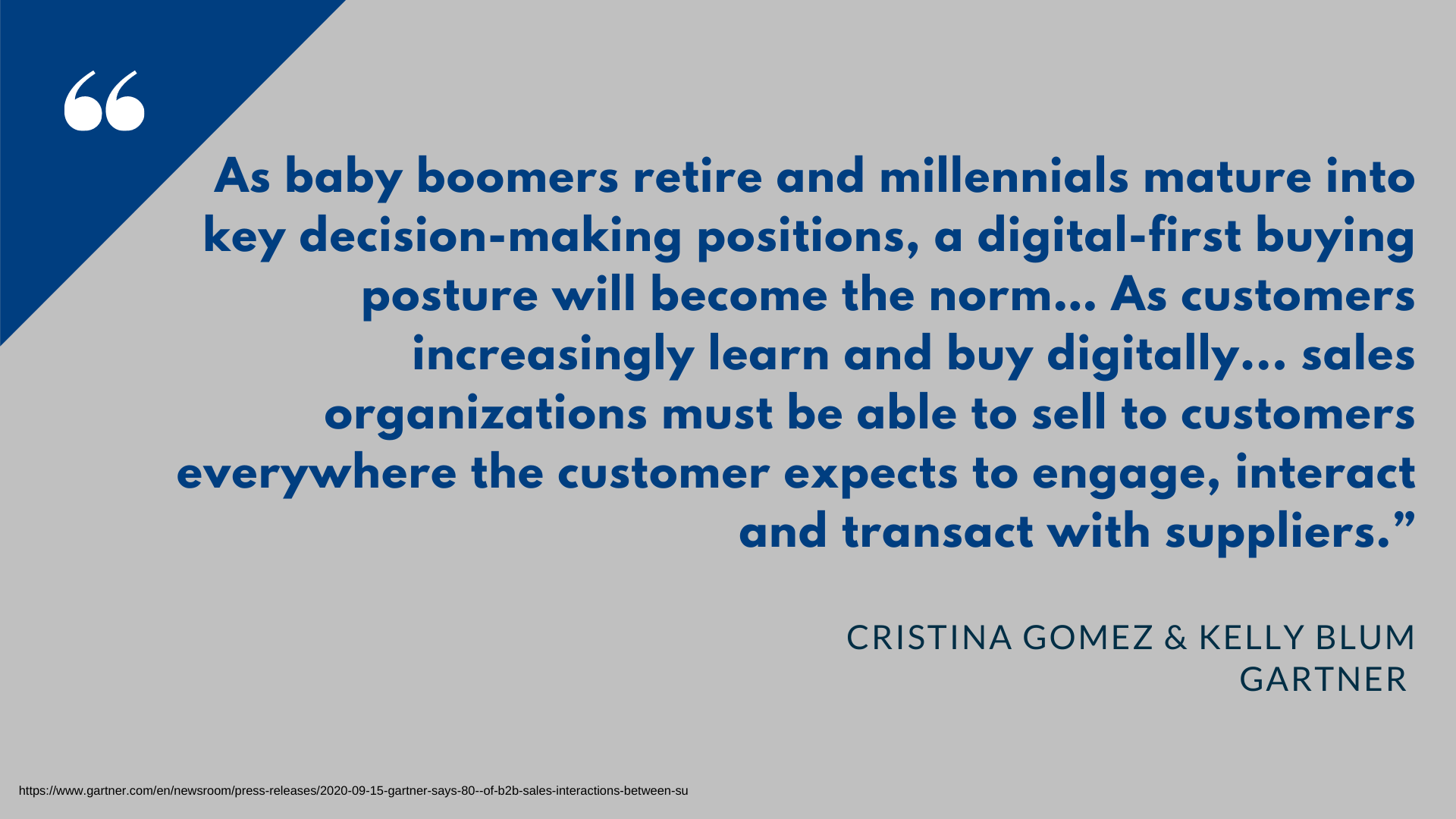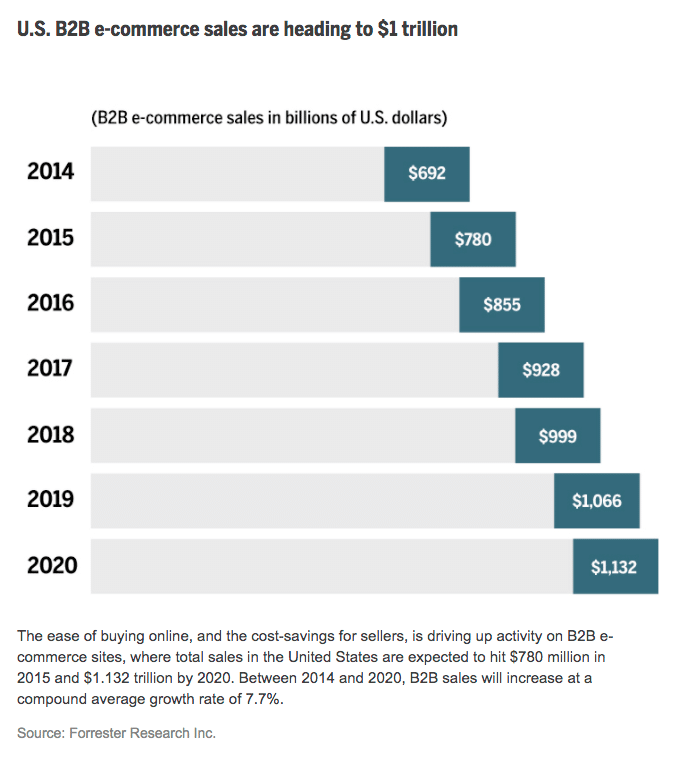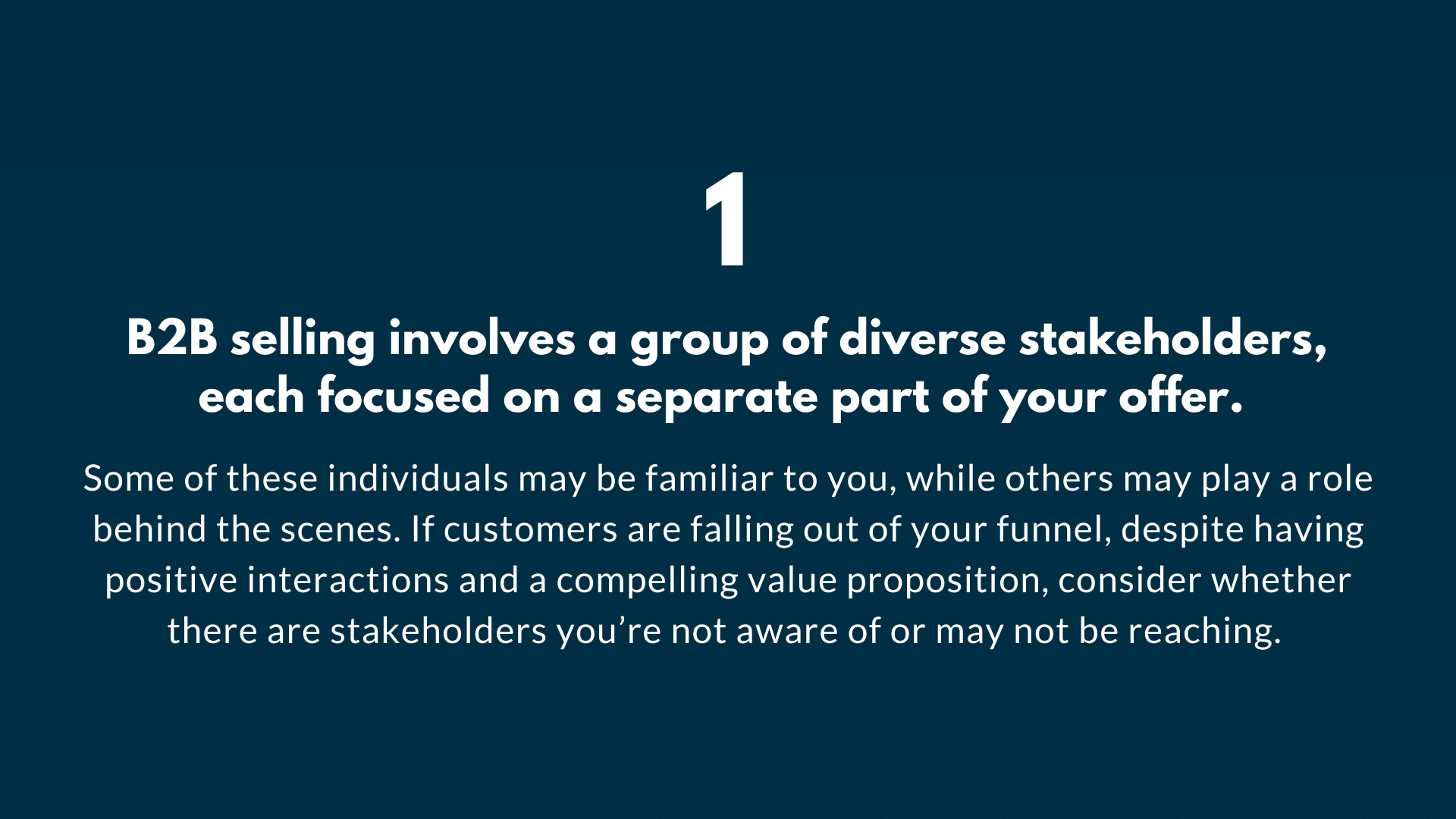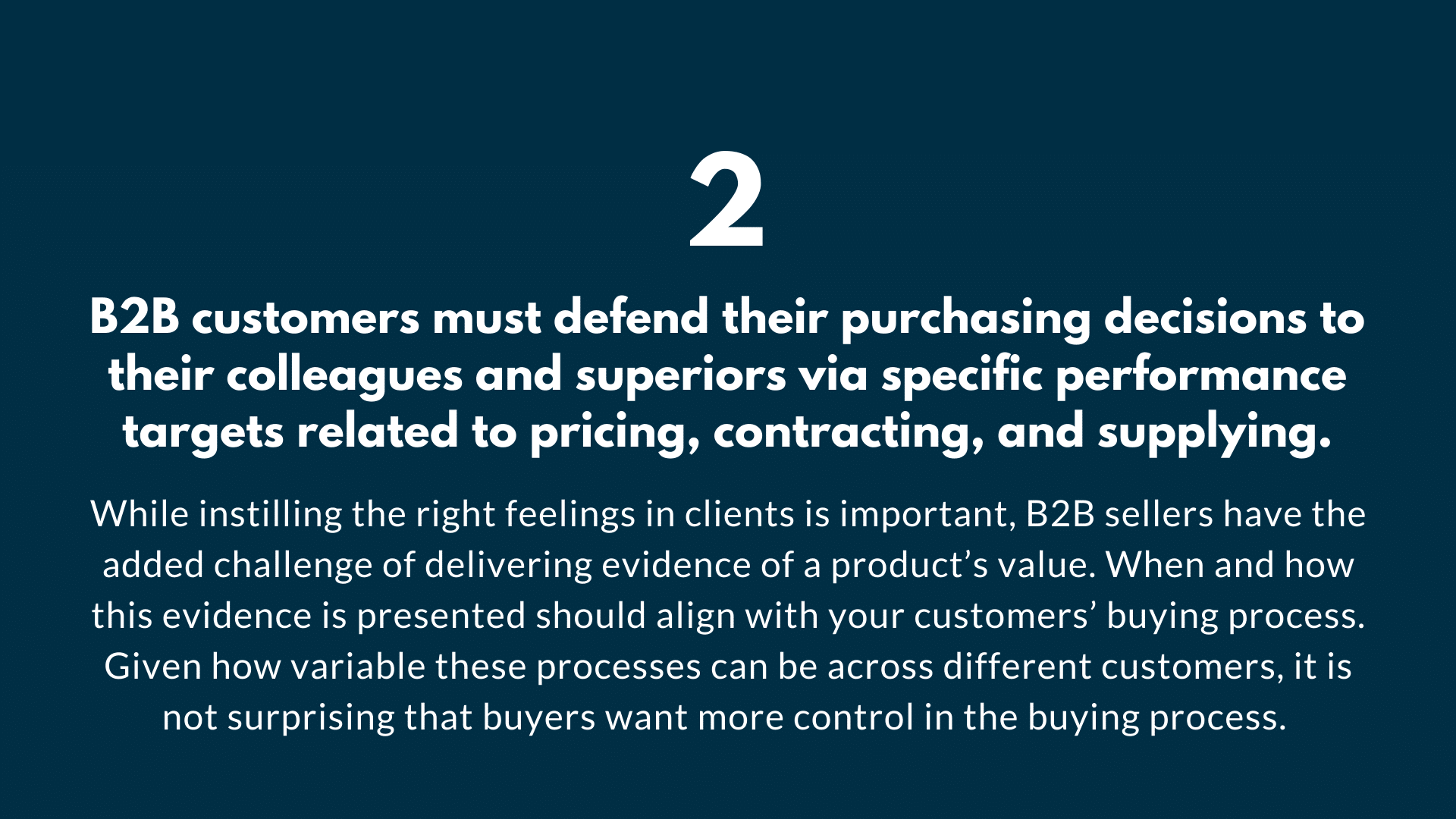“Buying online” has become routine for consumers, fueling growth for internet retailers, such as Amazon, while shuttering many brick-and-mortar businesses that were slow to change. The e-commerce trend has only accelerated over the last 18 months, penetrating spaces that had previously resisted digital transformation, such as B2B purchasing. Research indicates that B2B e-commerce is here to stay and will continue to grow.
The E-commerce Effect on B2B Marketing

Gartner’s Future of Sales report suggests an increasing proportion of B2B buyers prefer remote or self-service experiences and that by 2025, 80% of B2B sales interactions will be conducted via digital channels.
Many assume that forging an emotional connection to customers is less relevant in B2B, but research from Google and CEB demonstrates that B2B buyers have stronger emotional connections to brands than their consumers and that emotional connection is a more significant source of supplier differentiation in comparison to the product value.
Although many B2B businesses have implemented stop-gap digital channels, it is in their long-term interest to build out a robust digital approach. This approach must be integrated into their overall customer-engagement strategy in order to be successful. Luckily for B2B sellers, the lessons learned from B2C commerce provide valuable insight into how to build effective customer-centric digital experiences.

While B2B clients resemble consumers in many ways, it is important to recognize the unique aspects of B2B when constructing digital channels:


Building successful digital channels for your customers starts with conducting research in order to understand their needs. You may have a clear understanding of how purchasing decisions were made in 2019, but these processes have and will continue to evolve. Consider refreshing your understanding of your customers now and plan for ongoing insight moving forward. When engaging in customer research to support the development of digital channels, keep the following points in mind:
As technological innovation continues to accelerate, the future of business undoubtedly holds many surprises. One thing is clear – e-commerce will only become more important as millennials take over key decision-making roles. If B2B business leaders are to take any lesson away from the growth of B2C e-commerce over the last decade, it should be that sellers who did not adapt to the changing digital environment, like Blockbuster or Sears, were ultimately doomed to fail.


